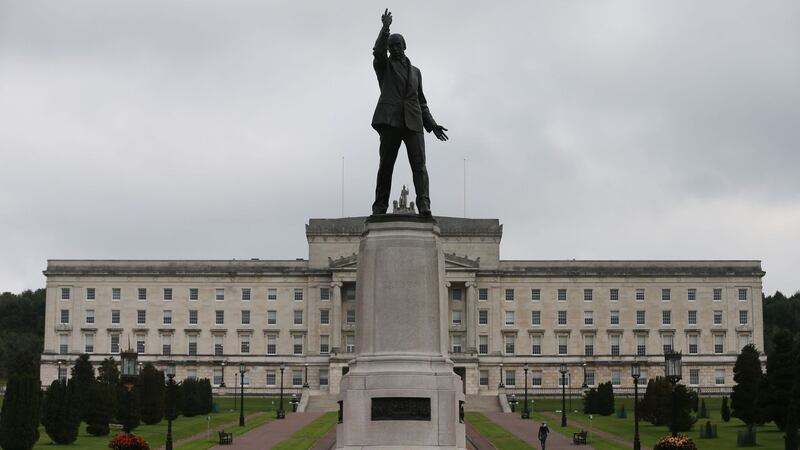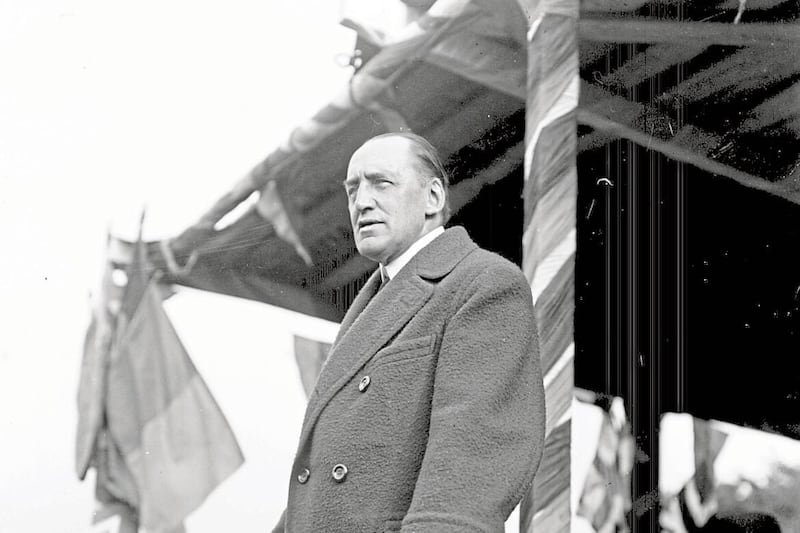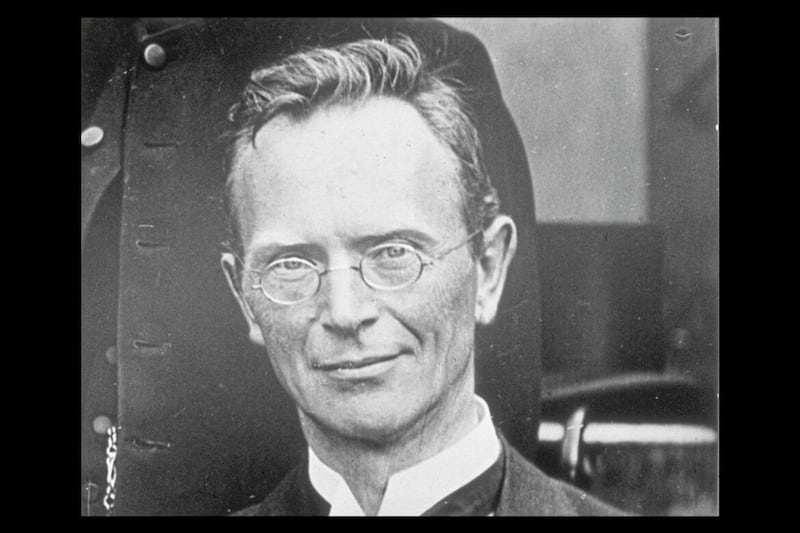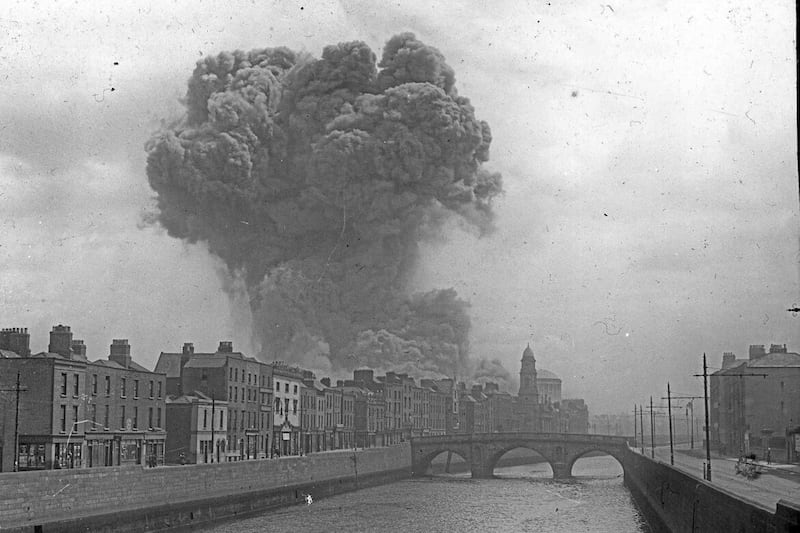GOVERNMENT parties in the Dáil consider Sinn Féin’s approach to a united Ireland, which includes the holding of a border poll that was provided for in the Belfast Agreement, will fail to convince moderate unionism to engage in talks on Irish unity. If and when a united Ireland emerges, it will not be by coercion or coaxing from Dublin, but by the past behaviour of unionists in the north towards their nationalist neighbours from partition in 1920 to the proroguing of Stormont in 1972.
In Northern Ireland a minority section of the population suffered 50 years of oppression in various, well-documented, forms. It began with an attempt at ethnic cleansing, thousands being put out of their jobs and homes during 1920-22. The dominant, contrived, majority justified the discrimination that maintained its privileged position. In 1955 Thomas Wilson, economic adviser to the Stormont government, explained that Roman Catholics were made to feel inferior because “they often were inferior”. In 1960 the ruling Unionist Party debated whether Roman Catholics could join and concluded: ‘No’. Those nearer the bottom rung of the unionist ladder received cruder versions of this message. Ian Paisley articulated nakedly sectarian views that unionists had promoted, which led to the forced resignation of Northern Ireland Prime Minister Terence O’Neill in 1969 when he looked favourably on the political accommodation of Catholics.
Civil rights demands from people such as John Hume, Ivan Cooper and Austin Currie, aiming to bring about by peaceful means equality of treatment throughout the north, were rejected by a recalcitrant unionism. If unionism acted at that juncture with a modicum of common sense and political integrity the nightmare of the armed struggle might never have evolved and this island may well have been spared the horrors of the following 30 years. Rarely has a community acted more purposefully against its own interests than unionism.
For half a century, Catholics were imprisoned in politically constructed ghettos, were denied equal access to jobs and housing, and to ensure the continuation of this policy were denied the right to vote themselves out of their predicament. Northern nationalists do not require knowledge of what happened during 1916 and the War of Independence to sustain hostility to the Northern Ireland state. Their lived experience was justification enough.
Tom Cooper
Irish National Congress
Dublin 2
Government engaged in an offensive against democracy
CAUSING annoyance may soon be against the law per the proposed Police, Crime, Sentencing & Courts Bill (PCSC) now passing through parliament. It will greatly restrict the right to protest in England and Wales. Police will be able to disperse non-violent demonstrations if they are too “noisy” or may cause “serious annoyance”. What causes serious annoyance is unclear. The maximum sentence for defacing a statue has been dramatically increased from 3 months to 10 years. Protests may be banned if they have “impact” – which is surely the primary objective of such protests.
It is presumably a populist statute intended to placate those right-wing Tories with an aversion to Black Lives Matter (BLM) & Extinction Rebellion (ER).
The week-long occupation of the City by ER was eventually broken up by police using the Public Order Act 1986, which was subsequently deemed to be illegal by the High Court. The right to protest has to be balanced against the rights of others to live and work freely and steps must be taken to mitigate the disruption. The government obviously has a duty to ensure that activists do not paralyse a city like ER did with London in 2019. The PCSC is intended to update police powers.
However, freedom of expression & freedom of assembly are surely indispensable elements of a liberal democracy. The repressive provisions of the PCSC would be welcome in the authoritarian regimes in Moscow or Beijing. It represents an insidious creeping authoritarianism that is threatening to choke liberty in the UK.
Legislation that seeks to restrict such a fundamental democratic entitlement as the right to peaceful protest should be subject to protracted and forensic examination. However, the government is stampeding this highly contentious and ambiguous bill through the Commons in the face of widespread and determined resistance – both inside and outside parliament. Its keenness to engage in this coercive approach to law-making clearly demonstrates its anti-democratic intentions.
This bill is in fact only the latest manifestation in a long list of government actions that collectively represent a sustained offensive against the fabric of British democracy. There are other equally egregious examples. These include the illegal prorogation of Parliament during the Brexit debate or the use of opaque procurement processes to award lucrative contracts to firms closely connected to government ministers past and present. The harassment of civil servants who refuse to give precedence to government dogma over available evidence is a further ominous symptom. We can of course also add the stalling, indeed reneging, on the implementation of the Northern Ireland Protocol – an international treaty, which was signed very recently with the EU.
This is an increasingly autocratic and cynical government. It should concern all those who consider that democracy and the rule of law are sacrosanct. To quote Paul Simon, libertarian Britain is “slip, sliding away”.
George Workman
Co Meath
DUP: Failing the loyalist people since 1971
THE abject failure of political unionism in recent months has again been laid bare for all to see. The DUP’s all too familiar knee-jerk reactions and short-term plans are failing the communities that they are elected to represent and serve. Their self-serving reaction around the Northern Ireland Protocol has whipped up tension in loyalist/unionist communities. The same party brought us the protocol via Brexit, yet they continue to mislead the same communities with their usual distractions that Donald Trump would be proud of. The same party that withdrew its support for the PSNI chief constable (despite the PSNI’s conclusion that Sinn Féin members should be prosecuted for their attendance at the Storey funeral).It is difficult to lay blame soley on those who are actively engaged in mindless thuggery, especially when they are as young as 13 years old. Indeed, it is incredibly sad that many of those young people will now be acquainted with the criminal justice system. The blame is with the DUP and its complete lack of political leadership and its failure to be honest with their dwindling support base.The tension in recent weeks has been driven by the DUP out of its only concern – for its political survival in the next assembly elections. Every objection and reaction is nothing more than an effort to regain some perceived lost election ground. A change to its campaign strategy by way of honest dialogue with loyalist/unionist communities would be one option. A refreshing and honest campaign slogan such as, ‘DUP, failing communities since 1971’, would also not be inappropriate. John Joyce
Belfast
BT9








